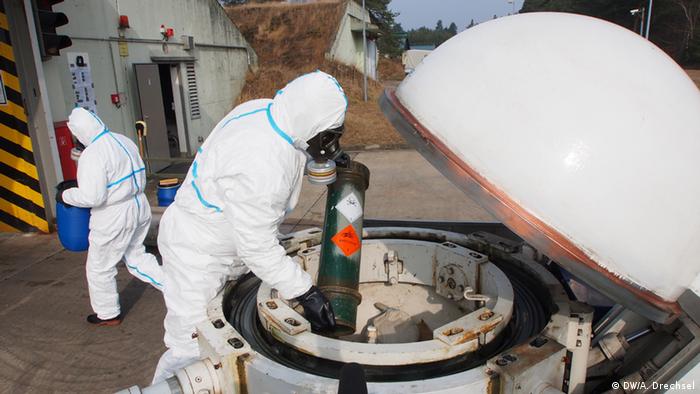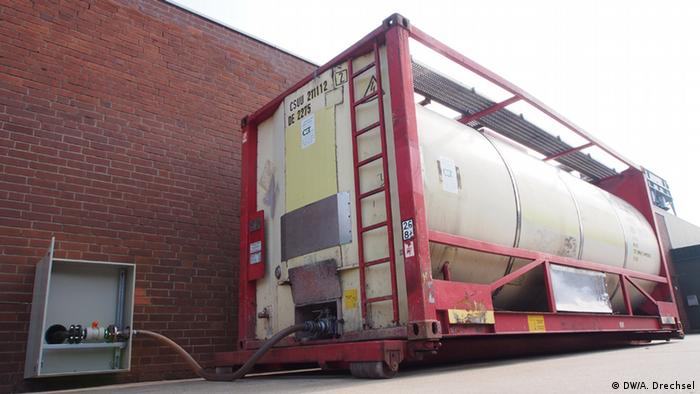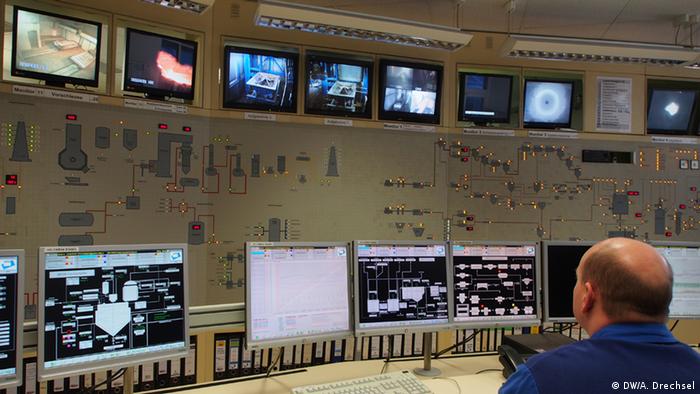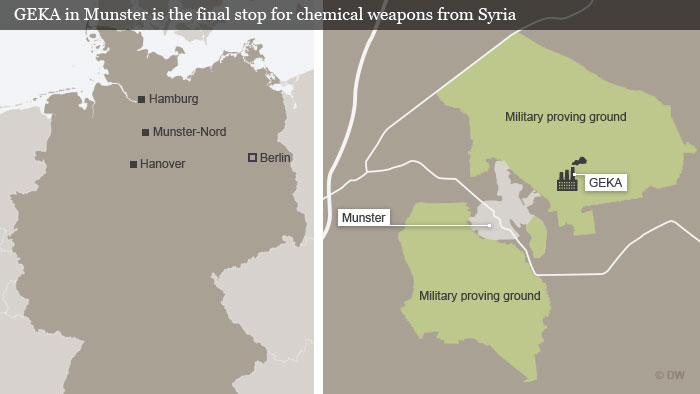Speaking from a safe house on the outskirts of the Turkish town of Antakya, Jamal Maarouf, the leader of the Syrian Revolutionary Front (SRF) told The Independent that the fight against al-Qa’ida was “not our problem” and admitted his fighters conduct joint operations with Jabhat al-Nusra – the official al-Qa’ida branch in Syria.
The admission could have significant implications for Western involvement in the Syrian conflict. While the US and UK have been vocal in their support for rebels fighting to remove President Bashar al-Assad, they have been reluctant to follow through with material support – such as heavy weaponry – over fears it would fall into the hands of extremist groups who might target the West.
Maarouf and his brigades are viewed as relative moderates in a loosely affiliated rebel army that is increasingly dominated by radical groups, and the SRF and similar groups are presented as the West’s best bet to fight both the Assad regime and extremists. His willingness to work with rebel groups the West deems unpalatable is a symptom of a war in which allegiances frequently change and all actors within it have been forced to compromise in order to survive.
Western support for Maarouf and other moderate rebel groups reached a high point earlier this year, when the SRF was the recipient of significant aid from the US and its allies in order to fight the ultra-extremist and one-time al-Qa’ida affiliate Islamic State of Iraq and the Levant (Isis).
With help from the Salafi Islamic Front and Aleppo-based Islamist Army of the Mujahedin, the SRF has forced Isis to retreat to its stronghold in the Aleppo provincial city of Raqqa, to Jarabulus on the Turkish border and to the Iraqi border.
But while Maarouf and his men were happy to fight Isis, a group of predominantly foreigners, he said he would not go after Jabhat al-Nusra. “It’s clear that I’m not fighting against al-Qa’ida. This is a problem outside of Syria’s border, so it’s not our problem. I don’t have a problem with anyone who fights against the regime inside Syria,” he said.
Maarouf admits to fighting alongside Jabhat al-Nusra – one example being the offensive against Isis, whose brutal tactics were deemed too violent even for al-Qa’ida leader Ayman al-Zawahiri.
While Maarouf maintains that their military supplies are too few to share, he cites the
battle of Yabroud, against the regime, as an example of how his group shared weapons with Jabhat al-Nusra.
“If the people who support us tell us to send weapons to another group, we send them. They asked us a month ago to send weapons to Yabroud so we sent a lot of weapons there. When they asked us to do this, we do it.”
Maarouf, a 36-year-old former construction worker, is a rare breed among rebel leaders affiliated with the official opposition in that he still fights on the front line to command his troops, which he claims number 24,000.
The past 20 days, however, he has spent in Turkey and away from the front – keeping a low profile for fear of assassination by Isis. His makeshift base in Antakya is buzzing with commanders on leave – one grizzly man in a grey tracksuit is introduced as having come directly from leading the SRF’s efforts in a new offensive in Latakia.
Maarouf’s importance to the Western-backed opposition-in-exile – the Syrian Opposition Coalition – was clear to see in February, when its leader, Ahmad al-Jarba, paid a rare visit to the front line under the protection of Maarouf’s brigades. He was also among the few commanders that attended the failed Geneva II conference in January, in an attempt to grant the political opposition greater legitimacy among Syrians, who have largely dismissed the body as unrepresentative of the Syrian people.
It has been unclear up to now how far Maarouf would be willing to fight for Western interests in Syria and there is little reason for the US to continue to fund a group that fights alongside al-Qa’i da.
“Funds are currently being funnelled to fight Isis as they are the greatest threat,” says Barak Barfi, a research fellow for the New America Foundation. “While nobody is funding the Nusra Front directly, they need them to fight Isis. By supporting the other groups, the weapons find their way to them.”
Maarouf denies receiving strong support from the US, citing a one-time $250,000 payment for salaries and benefits of a shared operations room in Jordan to fight the Southern Front. “We have received lots of promises from the US, but so far nothing more,” he said.
Though he has won respect for his battlefield exploits, Maarouf has also gained a reputation as a war profiteer. According to Dr Amr al-Azm, a member of the Syrian opposition, he is simply one of the last men standing for the moderates. “He does have an unsavoury reputation, but it’s a bit better than a lot of the other war lords out there. The rest are either dead, given up or completely bad and have gone over to the dark side,” he said.
The balance between remaining palatable to the West and also to the civilians and Islamist brigades it fights alongside is a difficult one to strike for Maarouf.
Alaa al-Sheikh, Maarouf’s 27-year-old adviser and Saudi-based co-ordinator, insists the SRF prefers to get its funding from Saudi Arabia, so they are not seen as US lackeys.
“If we get support from the US, then people will say we are sahwat”, says al-Sheikh.
Sahwat is a derogatory term used in reference to a group of Sunni tribesmen in Iraq who joined forces with US troops and rebelled against al-Qa’ida from 2006 to 2009. Al-Sheikh insists Jabhat al-Nusra and its members are “brothers”.
To many civilians in opposition areas, however, there is no dilemma. Jabhat al-Nusra has widespread popularity – not for its ideology per se, but for its reputation on the battlefield, as well as being composed mostly of Syrians.
It is a sentiment reflected by the political opposition, who are unable to disassociate from Jabhat al-Nusra, given their power on the ground. While the US continues to hesitate to fully arm the opposition, the alliance will continue to present an awkward situation for
Washington.
Self-immolation highlights woes of Syrian refugees in Lebanon: U.N.
BY YARA ABI NADER
BEIRUT Wed Apr 2, 2014 11:02am EDT
(Reuters) - A U.N. official said a Syrian refugee in Lebanon who doused herself with petrol and set herself alight after her aid was cut was a victim of a lack of funding for the world body's work.
The millionth Syrian refugee will register in Lebanon on Thursday, the U.N. refugee agency says, adding to the strain on a county of only 4 million which is struggling to stop the war from flooding into its territory.
Mariam al-Khawli, who fled
Syria with her husband and four children two years ago, set herself on fire last week in frustration at living without the food and cash lifeline provided by the
United Nations since August.
Her doctor, Gabriel al-Sabeh, said 70 percent of Khawli's body was now covered in burns and that she could remain in hospital for months if she survives.
Khawli husband is unable to work due to a lung abscess and three of her children have a blood condition and they had relied on the aid. Her story has become well known over the past days, after appearing in news outlets in Lebanon.
"We really got hungry ... but they burned my heart before they burned my body. They burned my heart from the inside," she told Reuters of how she regarded the U.N. cutback.
Ninette Kelley, regional representative for Lebanon at the Office of the
United Nations High Commissioner for Refugees, said: "Right now we have close to 1 million refugees and we are able to do a lot with the funding we receive but we simply do not have enough."
She said Khawli's case was "a very sorrowful reflection of the enormous desperation and need of the refugee community and it is also a telling reminder of the consequences of the Syrian emergency and the unfolding crisis here in Lebanon".
FUNDS SHORTFALL
She said the agency had been in touch with Khawli's family "for many, many months", but gave no details of why the funds were cut or how many other families might have been affected.
U.N. aid teams in Lebanon give aid to the most vulnerable first and makes regular checks on families who are not covered, Kelley said.
Last month, Lebanon's foreign minister said the crisis was "threatening the existence of Lebanon", still recovering from its own bloody 15-year civil war that ended in 1990.
Syrian beggars now walk the streets of Beirut and informal tented settlements have sprung up around the country.
Syrian rebels and their Lebanese allies fight openly with the army and militants from the Lebanese Hezbollah militia, which supports Syrian President Bashar al-Assad in a war now in its fourth year.
The United Nations says 2.5 million
Syria refugees have registered in total, more than 10 percent of Syria's population. Lebanon holds the largest number but Syrians have also fled to
Turkey, Jordan,
Iraq,
Egypt and elsewhere.
A U.N. appeal for $1.7 billion in 2014 to help the refugees is only 14 percent funded, Kelley said.
The mounting cost of the refugee crisis is also a major challenge for Lebanon's new government, which has to deal with strained public infrastructure as the Syrians seek housing, food, and healthcare at a time of economic slowdown in Lebanon.
Showing how the conflict is spilling over, two missiles on Wednesday hit Al-Labwa, a Shi'ite town in Lebanon that has been hit before by Sunni militants in retaliation for Shi'ite Hezbollah's role in Syria.
The strikes are the latest in a series of missile attacks, bomb explosions and gun fights that have grown as the Syria conflict has become increasingly sectarian.
Nusra Front members plotting in Lebanon
 |
| File - A member of Islamist Syrian rebel group Jabhat al-Nusra mans a checkpoint on the border crossing between Syria and Jordan, which they claim to have taken control of, in Daraa December 26, 2013. (REUTERS/Ammar Khassawneh) |
|
|
Security reports warn that a large number of
Nusra Front fighters have infiltrated
Lebanon in the last few days; most have been coming from Yabroud and
Qalamoun in Syria.
The reports said these fighters would likely join certain extremist groups in Lebanon that are plotting several terrorist operations, backed by fundamentalist and Islamist scholars who live abroad.
These fighters have scattered to several refugee camps and regions across Lebanon, with some residing in secret apartments.
Palestinian sources told
The Daily Star about their anxieties and expectations for dramatic incidents to take place in the refugee camp of Ain al-Hilweh in south Lebanon in the near future.
A senior security official in
Fatah informed the security forces that these groups have steadily been building their military capabilities, the results of which might soon be seen in operations carried out by these groups, who are financed by regional parties.
Reports have also revealed that the head of Fatah al-Islam in Ain Al-Hilweh, identified as Mohammad A. D., known as Khordoq, has finalized preparations and drawn a map of key locations that could be targeted by fighters based in the camp. The information said Palestinian IDs would be forged for members of several fundamentalist groups for later use to execute terrorist operations in Lebanon and Syria.
The security forces have also been informed that there are stolen cars in Ain al-Hilweh, where they were rigged by an explosives expert called Kh. Agha, an Algerian residing in Lebanon for the past seven years, who works for one of the fundamentalist groups in the camp.
The sources noted that the government-backed security plan that was implemented in north Lebanon and Tripoli had prompted several groups to take refuge in the camp, where they are planning out how to attack Hezbollah targets in response to the group’s involvement in the Syrian war.
Well-informed sources said a group of fundamentalist fighters were taking refuge in Akkar and would soon go to
Syria to support opposition fighters in their uprising against the regime, under the supervision of military trainers from the
Free Syrian Army and Syrian officer
Hussein Mahhour from Zabadani.
The training of these groups is part of a plan to boost the ranks of the FSA following its recent setbacks in Homs and Qalamoun.
A security report was provided to The Daily Star that contained the names of some of these fighters who will leave to train. They come from different regions and are identified as Mohammad S., Hussein A.S., Abdel-Rahman M., Tareq N., Ghassan M., Khaled Hisham A., and Mohammad Mustafa Kh.
The report confirmed that heavy and advanced arms were smuggled to Syria through secret crossings in the Bekaa Valley and Arsal under the supervision of Lebanese
Ahmad M. A. with the cooperation of an officer in the FSA identified as Ibrahim Fares.
A few weeks ago, dozens of Lebanese fighters traveled to a regional capital where they held several meetings with regional intelligence officers, with the presence of Nusra Front officials and military officers from different nationalities, to discuss a plan to be launched from positions in north Lebanon aimed at Syria to ease the pressures being exerted by the regime forces on the opposition groups and to keep reinforcements open.
CHEMICAL WEAPONS
Syria's chemical weapons: turning mustard gas into salt in a small German town
Germany will be taking on the toxic remnants of Syrian mustard gas and converting them into salt. When it comes to destroying chemical weapons, Germany has plenty of experience from history.

Chemical weapons are still being found in Germany decades after the First and Second World Wars. They stem either from the "gas war" between 1915 and 1918, images of which still shock today, or from chemical weapons dating back to the 1940s.
While no chemical weapons were used between 1939 and 1945, both Germany, as well as the allies, possessed huge arsenals of mustard gas, tabun nerve agent and sarin gas.
In Germany, the end of both wars saw tens of thousands of shells and chemical drums simply sunk into the ocean or buried underground.
When drums
occasionally wash up on shore or weapons resurface during construction digs, they are sent to a specialized company in Munster. There at the state-owned facility known as GEKA, chemical weapons and huge quantities of conventional munitions have been destroyed in a specialized incinerator.
The premises constitute just a small part of the 167-square-kilometer (65-square-mile) military training area halfway between Hamburg and Hanover. GEKA is owned by the German government and subordinate to the Ministry of Defense.
It is the only facility in Germany allowed to eliminate chemical weapons.
Syria's arsenal
It's perhaps no wonder that the German government has offered GEKA's services for the destruction of
Syria's chemical arsenal.
The Organization for the Prohibition of Chemical Weapons (OPCW) has accepted the proposal, and at some point in the second half of 2014, chemical weapons will be delivered to Munster. The materials shipped there will be the treated liquid remnants of 21 tons of Syrian mustard gas. These remnants will be transported from the Mediterranean Sea via ship and rail to northern Germany in 20-foot holding tanks.

A truck load of toxic chemicals arrives at GEKA
The mustard gas will not be neutralized in Munster. GEKA will simply deal with the water run-off resulting from the neutralization process, which will take place in the Mediterranean Sea aboard a US specialty ship's onboard facility. There, the 21 tons of sulfurous agent will, via pressure, hot water and a sodium hydroxide solution, be converted into 370 tons of hydrolysate, a caustic lye solution. Hydrolysate is 72 percent water, 10 percent salt and sodium hydroxide, eight percent thiodiglycol and includes quantities of 1,4-dithiane and 1,4-dioxane.
Like toxic industrial waste
"I'd equate the waste water that comes from the mustard gas' hydrolysate with toxic industrial waste," says Belgian chemical weapons expert Jean Pascal Zanders.
Zanders says the hydrolysate could theoretically be eliminated in conventional incinerators.
But he says it makes sense to ship the fluids on their long journey from southern to northern Europe, and to Germany in particular, precisely because the thiodiglycol component of hydrolysate can be used to manufacture mustard gas - and Germany is considered a safe country.
The expert sees other benefits too: In addition GEKA's experience and industry expertise, its location in Munster is an advantage.
"The area is relatively remote, and the communities that are close to Munster can handle the work going on there."
There have been a number of public protests against the main neutralization work in the Mediterranean, where the mustard gas and a further 540 tons of Syrian chemical agent components are being destroyed on the "Cape Ray" ship.

GEKA's control room: the heart of the operation
Steam and salt
It will take about five months for every last drop of the 370 tons of hydrolysate to be vaporized.
The liquid will be injected into a nozzle and sprayed into a special furnace, burning at 1,000 degrees Celsius (1,832 Fahrenheit).
The US military advises that the liquid should be slightly runny. Andreas Krüger, GEKA's technical manager, says this reduces the risk of the nozzles becoming clogged. As a precaution, however, he will begin with small samples in Munster, just to be sure. Other preparations have already been made.
"What we've just had to do was install an additional feed system for the liquid waste, because actually the facility wasn't designed for that. But that wasn't a big technical problem," Krüger says.
And at the end of the process, all that is left of the mustard gas is steam and salt.
The salt is added during the neutralization process.
"With us, these salts are routinely landfilled. They'll be packed into barrels and placed in a long-term landfill."
By that point it will likely be early 2015. And the remnants of once insidious chemical weapons from Syria will be tucked away in underground storage in Sondershausen, a small town in Germany - home to 20,000 people in the state of Thuringia.







No comments:
Post a Comment